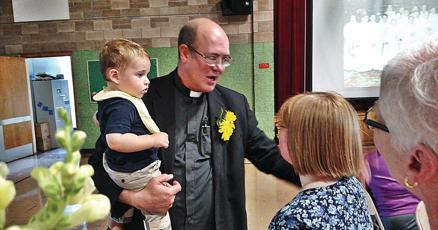The Center for the Scientific Study of Families publishes State of Family (SoF) reports that are designed to provide relevant information about the conditional state of families in a specified context. The report provides information such as population, culture, family structure, and family life.
SoF reports are an important tool for improving the lives of families. By providing information about the family’s conditional state and context, family reports can help improve communication between families and service providers and lead to better outcomes for families and children.
One question to consider is the relevancy of the SoF reports to members of clergy. Clergy members and religious organizations can benefit from state of family reports in a number of ways, including:
- Understanding the needs of their congregations and the communities they serve. SoF reports can provide clergy members and religious organizations with information about the challenges and opportunities that families are facing in their communities. This information can be used to develop programs and services that support families and to develop sermons and other religious teachings that are relevant to the needs of their congregations.
- Reaching out to families in need. SoF reports can help clergy members and religious organizations to identify families who may be at risk of experiencing problems or who may need additional support. For example, a SoF report might identify a high rate of poverty in a community, or it might identify a lack of access to healthcare. Clergy members and religious organizations can use this information to target outreach efforts and to provide support services to these families.
- Providing spiritual support to families. SoF reports can help clergy members and religious organizations to provide more effective spiritual support to families. By understanding the challenges and opportunities that families are facing, clergy members and religious organizations can provide more relevant and supportive counseling and guidance.
- Advocating for families at the community, state, and federal levels. SoF reports can be used by clergy members and religious organizations to advocate for families at the community, state, and federal levels. For example, clergy members and religious organizations can use state of family reports to argue for increased funding for social programs that support families or to support legislation that promotes family well-being.
There are a number of ways this can manifest in real life. For instance, a pastor might use a SoF report to identify the poverty rate in the community where their church is located. This information could then be used to develop programs to provide food and clothing to families in need, or to ensure that all children have access to religious education programs. Or maybe a rabbi might use a SoF report to identify the most common languages spoken in the homes of their congregants. This information could then be used to develop multilingual religious services or to provide translation services for congregants. Also, a priest might use a SoF report to identify families who are experiencing stress due to the loss of a job or the illness of a family member. This information could then be used to provide support services to these families, such as counseling or respite care. Finally, a religious leader might use a SoF report to advocate for increased funding for early childhood education programs. This information could then be used to support budget requests or to lobby for legislation that increases funding for early childhood education.
Overall, SoF reports can be a valuable resource for clergy members and religious organizations who are committed to supporting families and building stronger communities. By providing clergy members and religious organizations with information about the needs of families, the challenges and opportunities that families are facing, and the cultural background and values of the families in their community, SoF reports can help clergy members and religious organizations to develop programs and services that support families, to reach out to families in need, to provide spiritual support to families, and to advocate for families at the community, state, and federal levels.





